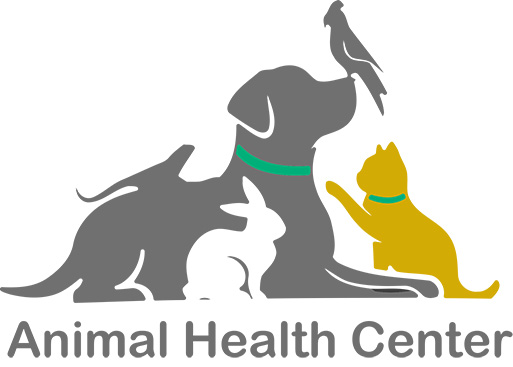Dog Care
Dog Allergies
Dog allergies are not usually life-threatening, but allergies can cause discomfort and make your dog miserable while also creating other complications. Most dog allergy symptoms are associated with skin problems and can lead to chronic respiratory issues if untreated for long periods.
Here is a list of allergy symptoms commonly found in dogs:
- Watery eyes
- Irritated skin or loss of fur
- Habitual scratching
- Excessive licking
- Repeated sneezing or wheezing
- Chewing on a specific part of the body
- Frequently rubbing against furniture, walls, or other items around the house or yard
Most allergies develop in a dog’s second year of life. In your dog’s first year, he or she will be exposed to many types of allergens, primarily through the skin. In a dog’s second year of life, its immune system may overreact to the antigen(s), causing a release of immune cells that unleash inflammatory substances, leading to itching symptoms.
One of the first things we do to discover the cause of your dog’s symptoms is a thorough exam. We will examine the external skin for parasites such as fleas and mites. We may perform diagnostics to help us determine what types of infections may be present.
If we conclude that your dog’s allergies are the root cause of skin irritation, infections, and discomfort, we may recommend testing specific allergens.
Dog Allergen Groups
Dog allergens typically fall into the following groups:
- Food allergies – Just like humans, dogs can be allergic to certain ingredients in food.
- Contact allergy – This includes many different types of grass and plants. It could also include mold and dust mites.
- Flea allergies – A large number of dogs are highly allergic to fleas.
- Inhalant allergy – Allergens are present in the air.
The most common allergies found in dogs are contact allergies. Contact and inhaled allergies can cause an allergic reaction in the body that centers mainly on or in the skin and causes extreme irritation. A dog’s skin can become so irritated that they scratch persistently and eventually cause an infection.
If you observe your dog exhibiting any of the above symptoms, please contact Animal Health Center, Opelika, Auburn, (334-745-0060) and make an appointment. Early diagnosis and care of dog allergies increase the likelihood of your dog’s treatment being successful. Early diagnosis and treatment can also be less expensive than delaying treatment.
Dog Care
Canine Diagnostic Imaging
Your dog’s health is our top priority. Our state-of-the-art diagnostic imaging services help us to treat your dog accurately and promptly.
High-quality digital imaging equipment is an essential and integral component of diagnosing and treating your dog. Animal Health Center, Opelika, Auburn, is highly invested in comprehensive imaging modalities to support our ability to visualize your dog’s internal body structures.
Diagnostic imaging can help a veterinarian:
- Locate a broken bone
- Detect disease
- Diagnose a diversity of internal disorders
- Detect a foreign object in your dog’s body
- Measure the progression of a tumor or growth
- Evaluate the size, shape, position, and condition of internal organs
Diagnostic imaging often necessitates the use of several different technologies to obtain the information needed to diagnose and treat your dog. These imaging modalities include:
- Radiography (X-ray)
- Ultrasound
- Echocardiography
- CT Scan
- C-arm (fluoroscopy)
- MRI
- Arthroscopy
- Laparoscopy
- Thoracoscopy
- Flexible and rigid endoscopy
Radiography (X-ray) and abdominal ultrasound (including echocardiography or cardiac ultrasound) are the most utilized imaging modalities in veterinary medicine. We work with outside facilities for more advanced imaging like CT or MRI imaging.
These diagnostic procedures may require sedation in some cases. Sedation would be used in the interest of your dog’s well-being and comfort and ensure the best image quality. However, most of these tests are performed without sedation or anesthesia. Since we are digital, results are typically available immediately, allowing us to provide a swift diagnosis.
To learn more about our diagnostics for dogs, or to schedule your appointment, call Animal Health Center, Opelika, Auburn, at 334-745-0060.
Dog Care
Dog Deworming
The mere mention of worms summons unpleasant images in most dog owners’ minds. Intestinal worms are a dangerous health hazard for your dog and can potentially spread to humans; therefore, they need to be dealt with quickly.
There are several varieties of worms that may infect your dog. The most common types of worms observed in dogs are:
- Roundworms– These worms are found in the intestines. They can infect puppies and can also be transmitted from the puppy’s mother. They can also infect humans and can cause blindness and brain damage. Children are at the most significant risk.
- Hookworms– These will attach to your dog’s intestinal lining and suck a significant amount of blood from their host.
- Tapeworms– Tapeworms infect your dog when they eat an infected flea or wild prey. Keeping your dog on flea-prevention medication can significantly reduce the chances of your dog becoming infected with tapeworms.
- Whipworms– Whipworms are a small and dangerous whip-shaped intestinal parasite found in dogs. Whipworms are often found in newborn puppies.
Common signs that your dog may have intestinal worms are:
- Diarrhea
- Variation in appetite
- Potbellied appearance
- Painful abdomen
- Inability to gain weight
- Anemia
- Vomiting
- Poor coat appearance
- OR, a dog can look completely normal and carry intestinal parasites, posing a potential risk to other pets or people in your home.
If you notice any of these signs in your dog, please contact Animal Health Center, Opelika, Auburn (334-745-0060) to make an appointment. We can test your dog for intestinal worms and prescribe the appropriate medication to deworm your dog of these dangerous parasites.
